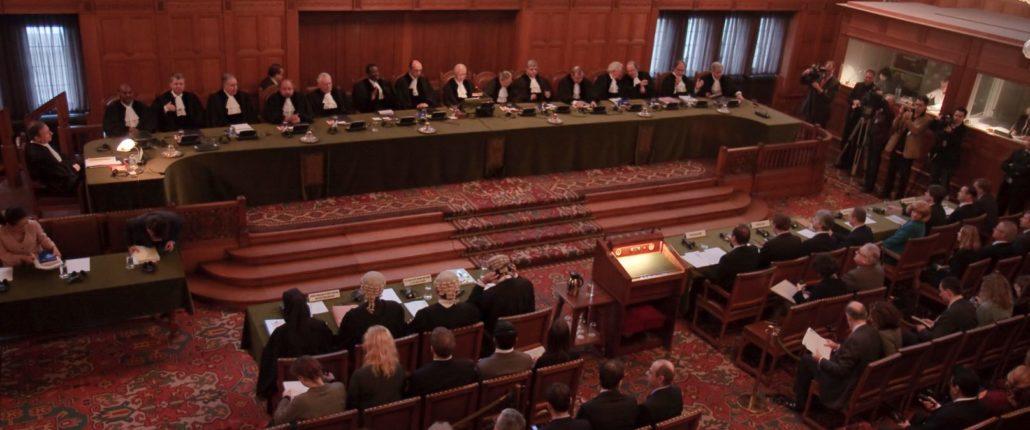Introduction to Rule of Law Practice
This course introduces foundational legal, justice, and rule of law theory, along with comparative legal systems. It also covers the history of the rule of law field and its community of practice, as well as outlining the basics of rule of law project management.

Course Overview
This course is designed to provide an introduction to the foundational legal, justice and rule of law theory, along with comparative legal systems (so that practitioners will be familiar with all the various types of legal systems they may find themselves working in). It also covers the history of the rule of law field and its community of practice, as well as outlining the basics of rule of law project management. This course is especially helpful for: non-lawyers working on rule of law reform; those with a legal background, but without experience in rule of law reform; and lawyers or non-lawyers who have never undertaken project design or management.
Course Objectives
Upon completion of this course, participants will be able to:
- Explain why “rule of law” is important to peacebuilding and why rule of law skills are critical to any peacebuilding process;
- Define rule of law, justice, access to justice and related-concepts;
- Trace the history of rule of law reform efforts since post-World War II and overview the various rule of law actors and institutions;
- Describe basic legal concepts;
- Map the justice system, its components and the legal framework in a conflict-affected country;
- Compare and contrast different legal systems (customary justice; common law and civil law; Islamic legal systems); and
- Outline project management basics (Assessment; Design; Implementation; Monitoring and Evaluation).
Introductory Video
Click the arrow to play. If you can't see the video, click here.
Agenda
Chapter 1 - Rule of Law and Related Concepts
Provides an overview of the theory of rule of law and other concepts that overlap and intersect with the rule of law.
Chapter 2 - The International Rule of Law History and Community
Examines the history of international rule of law movement and the various institutions and actors that are part of it.
Chapter 3 - Justice Systems and Sources of Law
Details the domestic and international sources of law that may apply in a conflict-affected country. It also provides an overview of the types of justice systems that may be operating a conflict-affected country and the institutions and actors that they are comprised of.
Chapter 4 - Customary Justice Systems
Provides an introduction to customary justice systems, their nature and features and the different ways they are recognized by the state. It discusses the limitation and criticisms of customary justice, including their lack of conformity to International Human Rights Law.
Chapter 5 - Common Law and Civil Law Traditions
Provides an introduction to common law and civil law systems and their respective histories, sources of law, court structures, justice actors and processes and systems for legal education.
Chapter 6 - Islamic Legal Systems
Provides an introduction to Islamic legal systems, sources of Islamic law and the interpretation of Islamic Law by justice actors. It will also focus on the relationship between Islamic Law and International Human Rights Law and give an overview of how Islamic law is applied in modern states today.
Chapter 7 - Project Management
Introduces participants to the field of project management. It will provide an overview of the project cycle (assessment, design, implementation and monitoring and evaluation) and the project management skills a rule of law practitioner will require to work effectively on rule of law reform projects.
Instructors and Guest Experts
Instructor
- Vivienne O'Connor, Rule of Law Academic, Practitioner, and Trainer
Guest Expert
- Hamid Khan, Adjunct Professor, University of South Carolina



